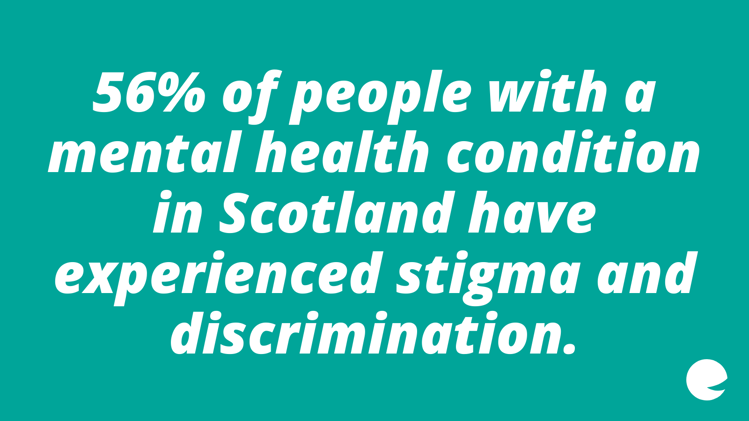
Speaking About Mental Health
If you're not sure what language to use, we've got our top tips for speaking about mental health here
The language we use while speaking about mental health can have a huge impact on the people we interact with.
This sheet has a few helpful pointers on things to speak about and things to avoid, when you’re volunteering with See Me.

Suicide
When speaking about suicide don’t use terms:
- Committed suicide
- Killed themselves
Don’t describe a suicide as successful. As suicide is not a crime it is no longer accurate to use the phrase committed suicide. When speaking about suicide, or suicide attempts, do not go into detail into the methods of suicide.
When speaking about suicide use terms such as:
- Completed suicide
- Took their own life
- Died by suicide
Self-Harm
Similarly to suicide, it is not helpful to mention specific methods of self-harm, e.g. it is okay to mention an overdose, but avoid detailing amounts or what substance. Pictures of self-harm can also be triggering and should not be shared. A good general rule when speaking about self-harm is to focus on feelings, not behaviours.
Avoid presenting self-harming behaviour as a solution to problems, as people listening or reading may interpret the behaviour as a positive coping strategy.
Eating Disorders
When speaking about eating disorders, as a general rule, try to avoid speaking about specifics, or anything that could lead to copying behaviour.
- Do not mention specific weights relating to the lowest weight a person was or you were, if speaking about your own experience
- Similarly, mention of specifically small amounts eaten e.g. ‘lived on half an apple a day’ would act as an encouragement to restrict or purge.
- Images, especially photographs of certain emaciated body parts are triggering – ribcages, concave stomachs, collar bones, sternums and spines. Tops of arms that are shown as the same circumference as wrists, or thighs the size of knees are also unhelpful.
General Tips
- Don’t describe someone as ‘suffering’ with a mental health problem, instead use experiencing.
- Don’t describe someone as ‘a schizophrenic’ or a ‘depressive’, instead say someone who is experiencing schizophrenia or someone who has depression.
- Don’t use terms like ‘nutter’, ‘maniac’ or ‘schizo’ as they can just add to the stigma around mental health
